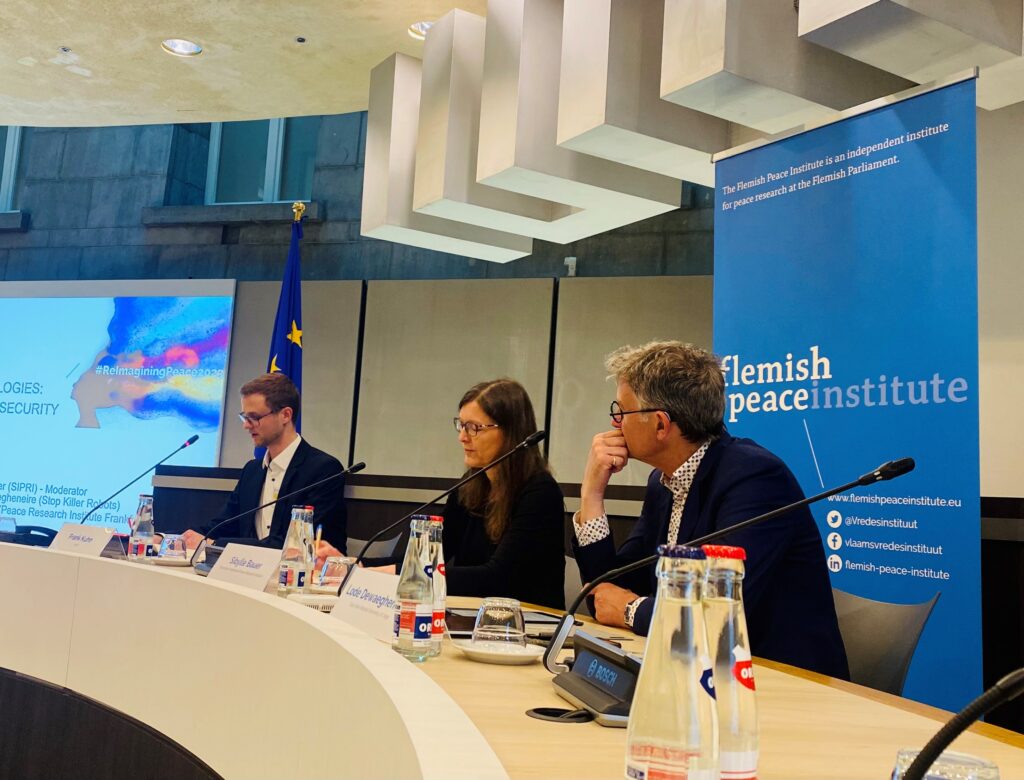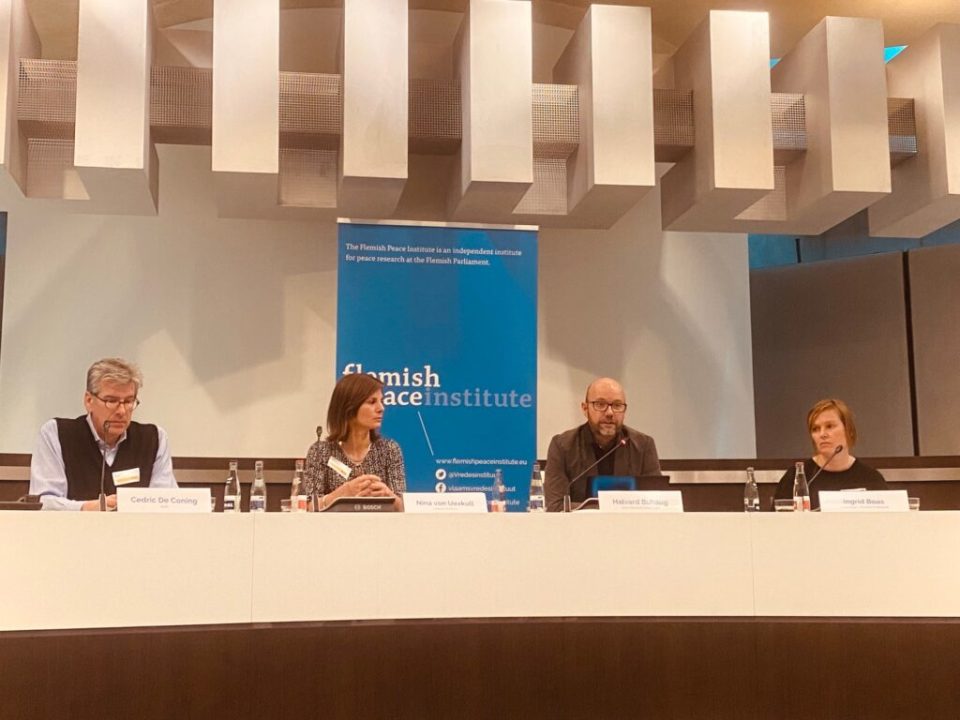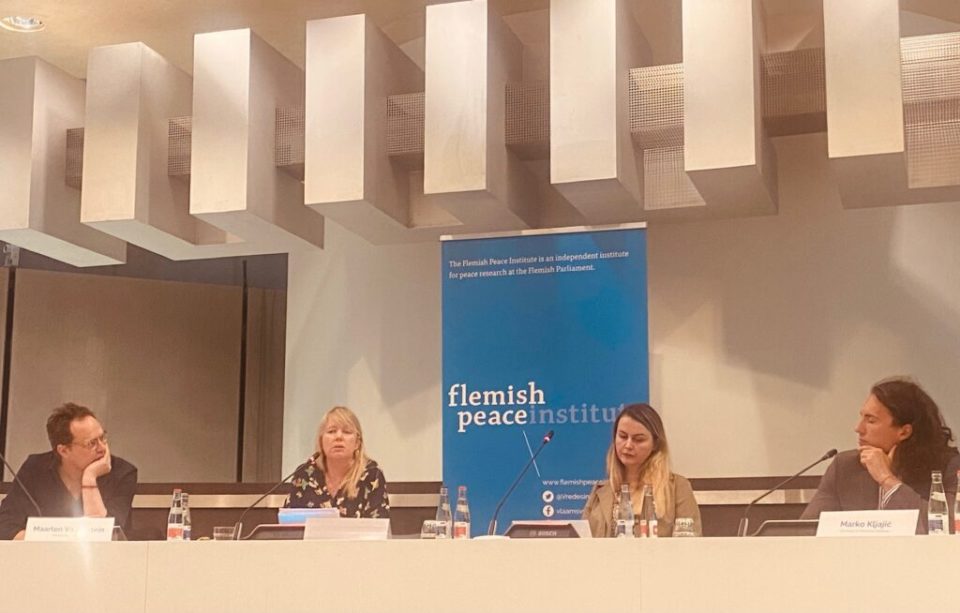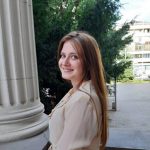
The #ReImagining Peace 2023 conference concluded that today’s youth are the future and the future they need is one of peace. Educated young people are essential, and this is why we must provide them with a safe environment in which they can discuss controversial topics.
The conference “Reimagining Peace: New Agendas for Research & Policy in Times of Conflict” was held on May 8th and 9th this year in Brussels. It was organized by the Flemish Peace Institute, Post-Conflict Research Center, Tampere Peace Research Center, Prague Peace Research Center, and Oslo Peace Research Center.
The conference brought together around 150 people, including researchers, professors, students, representatives of non-governmental institutions, activists, and others dedicated to sustainable peace, youth, education, women’s peace research, security, and climate.
Nail Duquet, the director of the Flemish Peace Institute, emphasized that the conference aims to facilitate networking and information exchange among diverse actors in the field of peace research.

“We hope that the conference will generate new ideas and offer insight into the diversity of approaches to peace research,” said Duquet.
Following the introductory remarks and the opening of the conference, four panels were conducted. Two panels were held simultaneously, allowing participants to choose their preferred session based on their interests. The panel discussions covered various topics, including peace research during times of conflict, local peace initiatives, the climate and peace research from a
The Burden of Learning about the Past
The panel titled “Global crisis – Local Peace” was moderated by Velma Šarić, president and founder of the Post-Conflict Research Center. The discussion focused on the topic of peace building in Bosnia and Herzegovina. Šarić emphasized that while memorialization initiatives do exist and are often highly publicized, they are rarely “coordinated between different sectors of government, civil society, local communities and within different ethnic and religious groups.”
“We haven’t been able to move away from the one-sided presentation of history and narratives that cause divisions in schools, including the physical segregation that is ‘nurtured’ by the ‘two schools under one roof’ system,” said Šarić.
Maarten Van Alstein, a senior fellow at the Flemish Peace Institute, spoke about the challenges of peace education, and stressed that controversies and social conflicts are inevitable in a democratic society. The burden of learning about the past, according to him, is on the entire school.
“Don’t wait for a problem to arise, start working on it sooner. Both teachers and students bring their perspectives on an event to the classrooms and from their respective positions, start a dialogue with each other. And the way in which that dialogue will be conducted depends on the entire school,” Van Alstein emphasized.
The panel “Global Crisis – Local Peace” also underscored two factors that contribute to educational discussions in the classrooms. The first is establishing procedures to handle any disrespectful behavior that may emerge and ensure a safe environment for all participants. The second is to have dialogue, where there is empathy for one another and the understanding that dissenting from the mainstream opinion does not justify spreading hate.

Tiffany Fairey, a professor at King’s College London, highlighted the powerful message conveyed by photographs, which serve as visual representations of the author’s perception of the world. Furthermore, she emphasized the value of images as educational tools, noting that depending on the author’s intentions, they can be used as instruments of revenge and propaganda, or as a shield in defense of peace and freedom.
Amidst a world full of images of war and conflict, Fairey posed the question of what an image of peace truly looks like, pointing to photos from the PCRC’s MIR magazine.
She explained that our conception of peace is mostly what we see in the present, adding, “We imagine peace through the past, but we also look to the future, and I think it’s exciting to work with creative methods like photography, because it allows us to imagine much more than what we see at the moment.”
Marko Kljajić, a PhD candidate in comparative politics and international relations at the University of Wisconsin-Madison and a program director for PCRC, described reconciliation as the ultimate goal of post-conflict reconstruction.
“Although the term is rather ambiguously defined in the literature, most would agree that it refers to the building or rebuilding of social relations based on trust and cohesion,” said Kljajić.
“Others also Have Rights and Freedoms”
According to Kljajić, the stories featured in the documentary “Ordinary Heroes” produced by the Post-Conflict Research Center are very important for a society recovering from conflict. These narratives shed light on people who have gone through hardships in the past and, as a result, have developed a profound sense of responsibility towards others. Kljajić underlined the significance of these people being able to make meaningful connections between their own experiences of suffering – whatever that may be – and those of others.
Regarding recognition, he noted that it can be a costly step which indicates one’s commitment to peace and reconciliation. Achieving long-term social cohesion requires certain moral, economic, and political concessions.
“Recognizing what has been done implies a normative determination that others should be treated with basic dignity and that they are entitled to certain rights and freedoms as members of the common human community,” added Kljajić.
Professor Emeritus Mary Koldor, the director of the Conflict Research Program at the School of Economics and Political Science in London, responded to questions about whether the war in Ukraine has changed the way we perceive war and peace. She also addressed whether there is a need to reconstruct our security structure, military setup, and even the role of NATO, presenting guidelines for thinking in times of conflict.
On the second day of the conference, which coincided with Europe Day on May 9th, interactive panels discussed topics such as new technologies and arms control, peacebuilding, and the role of Europe in these matters. The conference concluded with a panel featuring young researchers who presented innovative solutions in the field of peace research.






